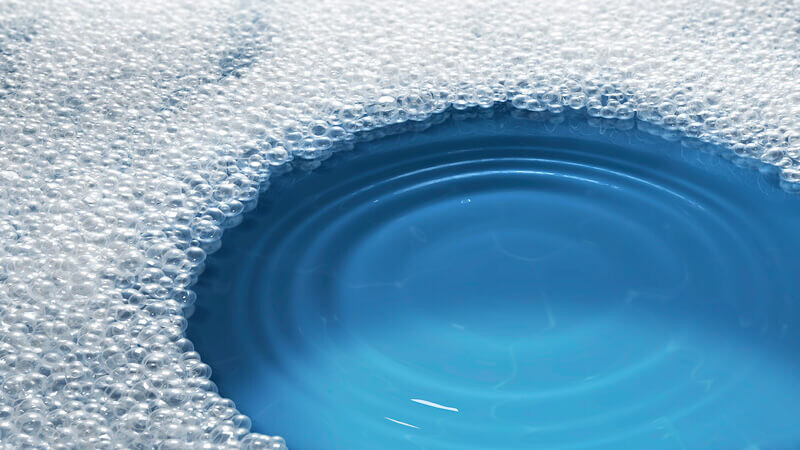Choosing the Right Defoamers for Your Industry Needs
Choosing the Right Defoamers for Your Industry Needs
Blog Article
The Duty of Defoamers in Enhancing Item High Quality and Efficiency
Defoamers serve as crucial additives that reduce this issue, ensuring smoother production process while boosting the aesthetic and functional qualities of the last products. The selection of the appropriate defoamer can be critical to accomplishing optimum outcomes, elevating crucial questions concerning formula compatibility and efficiency metrics that warrant further exploration.
Recognizing Defoamers
Recognizing the duty of defoamers is vital for maintaining item top quality across numerous industries. Defoamers are chemical ingredients created to prevent the development and minimize of foam in fluid systems, which can detrimentally impact procedures such as blending, filling, and surface area stress. Frothing can bring about inadequacies, product issues, and endangered visual appeal, making defoamers an essential element in making operations.
In commercial applications, defoamers aid to improve product uniformity and security. The efficient use of defoamers not just guarantees smoother manufacturing processes but additionally contributes to superior item efficiency.
Additionally, the selection and formula of a defoamer should line up with particular application requirements, such as compatibility with other ingredients, performance under differing temperature and pH problems, and potential regulatory constraints. Inevitably, recognizing defoamers' features and their value in different formulations is crucial for maximizing production and making sure the best quality final product.
Kinds Of Defoamers
Defoamers can be categorized right into numerous types based upon their composition and system of activity. The main kinds include silicone-based, non-silicone natural, and not natural defoamers.
Silicone-based defoamers are amongst one of the most effective, primarily due to their capability to spread promptly on the liquid surface and interrupt foam development. Their unique chemical structure enables superior stability, making them ideal for high-temperature applications and environments with varying pH levels.
Non-silicone organic defoamers, often composed of all-natural oils or fatty acids, are valued for their biodegradability and reduced poisoning. These are usually used in food and drink applications where safety and environmental influence are paramount.
Inorganic defoamers, which include substances like talc or calcium carbonate, act by raising the density of the liquid, consequently minimizing foam security. They are commonly made use of in commercial processes where compatibility with other materials is not a concern.
Each sort of defoamer has distinctive benefits and restrictions, enabling tailored services depending on the details frothing problems experienced in various applications. Understanding these distinctions is vital for enhancing performance and achieving wanted item high quality.
Applications Across Industries
Countless markets leverage defoamers to boost item quality and functional effectiveness. In the food and beverage field, defoamers are vital in processes such as developing and dairy products production to stop foam development, which can result in inefficiencies and item disparity. By regulating foam, makers can guarantee far better yield and an extra uniform item.
In the pharmaceutical market, defoamers play a vital duty in the formulation of fluid drugs, where excessive foam can restrain mixing and exact dosing. Their usage aids preserve the honesty of the formulations and promotes smoother production procedures.
The paint and coverings sector also depends on defoamers to boost the performance of items during application. By lessening foam, these ingredients guarantee a smoother coating and boost the aesthetic high qualities of the end product.

Advantages of Making Use Of Defoamers
While the application of defoamers differs throughout markets, their benefits regularly enhance product quality and process performance. One considerable benefit is the reduction of foam formation throughout making procedures, which can or else bring about manufacturing delays and disparities in product top quality. By minimizing foam, defoamers enable a smoother flow of materials, facilitating more efficient operations and reducing the chance of devices malfunctions.
Additionally, making use of defoamers can enhance the appearance and appearance of last items. In sectors such as finishes, paints, and food handling, extreme foam can jeopardize the visual appearances and general quality, while the ideal defoamer application makes sure an uniform coating and desirable see it here characteristics. In addition, defoamers can contribute to set you back financial savings by reducing waste throughout manufacturing and optimizing the usage of resources (defoamers).

Picking the Right Defoamer
Selecting the right defoamer is important for maximizing manufacturing procedures and making certain item quality. The option of defoamer influences not only the efficiency of foam control yet additionally the general efficiency features of the end product. Variables to think about include the sort blog of application, the chemistry of the solution, and the environmental problems under which the item will be used.
Various markets may require particular defoamer kinds, such as silicone-based, organic, or polymeric defoamers. Understanding the compatibility of the defoamer with the primary active ingredients is important to avoid damaging responses that could endanger product integrity. In addition, the defoamer's efficiency in various temperature levels and pH levels should be evaluated to make certain constant efficiency.
Evaluating the defoamer in small applications can offer beneficial insights into its efficiency and suitability. Consideration of governing compliance, specifically in food, pharmaceuticals, and cosmetics, is vital in selecting a defoamer. Eventually, an extensive analysis of these elements will certainly lead to the choice of a defoamer that not just controls foam successfully but likewise improves the top quality and performance of the final item.
Verdict

Finally, defoamers are necessary ingredients that significantly enhance item top quality and performance across various markets. By successfully lowering foam development, these agents not only enhance operational efficiency but also contribute to the practical and visual integrity of products. The strategic choice and application of defoamers bring about cost savings, enhanced resource use, and enhanced client fulfillment. Generally, the importance of defoamers in commercial processes can not be overstated, as they play an important duty in accomplishing constant and top quality results.
Frothing can lead to inadequacies, product problems, and compromised aesthetic appeal, making defoamers a crucial component in making operations.

Report this page